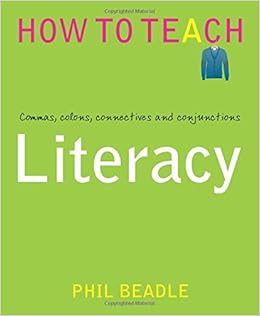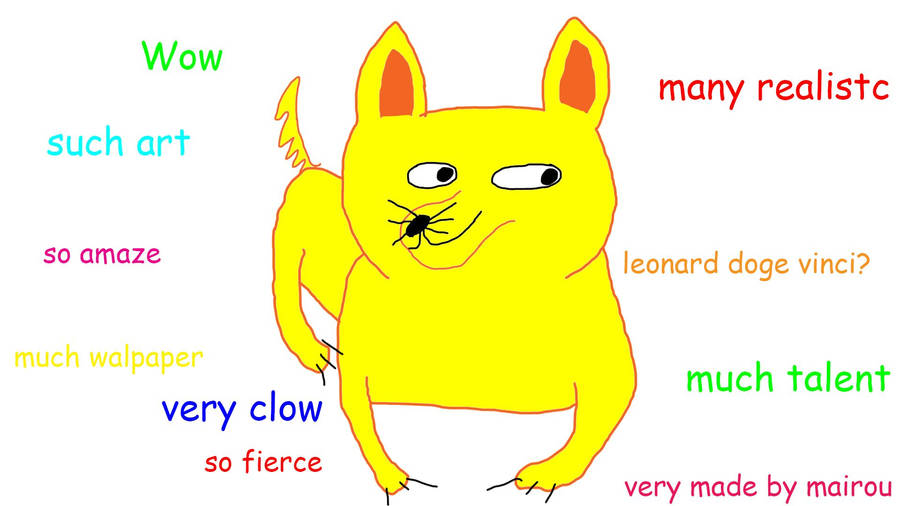
This morning I finished reading the most recent book in the series, How to Teach: Literacy. As part of my PM targets this year, tied in to Research Lesson Study (RLS), I've been tasked with finding a way (or more likely 'ways') to improve the writing skills of KS3 students. In my quest for knowledge, I purchased a few books about Literacy, because I wanted to start at the heart (so to speak) of the issue. Beadle's text was the first one I ventured into.
Having already read one of Beadle's books, I was prepared for his witty, conversational style. Some teachers, particularly the uppity type, might find the tone, and some of his anecdotal examples, offensive. However, I would argue that this type of teacher wouldn't dream of picking up a book on literacy in the first place; they'd view themselves as above it. I image them to be the kind of 'grammar school' toff that Beadle mocks in the text itself. These are the types of teachers that aren't looking to improve their practice because they're so far up their own...ahem...to ever consider themselves as a weakness in their students progress.
But I digress. I think anyone interested in improving the literacy of their students should pick up this book as a 'way in' to the topic. I definitely found it helpful, and have already implemented some of the ideas mentioned in the text, with clear results! I will outline some of the examples and ideas below, just so you get a flavour of what the book has to offer.
The first piece of advice that I took from the text was to set a word limit for students when producing writing. This can be done in any lesson, English or otherwise. Beadle explains his reasoning for this quite soundly, suggesting that in further education and work we are often set word limits (thoughts of my recent Thesis paper crops up), and I realised it wasn't something I did enough in lesson. Setting a word limit also allows students to access writing in manageable chunks, especially if you start out small. I decided to try it out with one of my Year 9 groups. They're a middle ability group, with reams of higher-level potential that I'm trying to tease out. However, they can sometimes be reluctant writers, mainly because (as Beadle suggests in his book) they haven't had much success with writing in the past.
It was our first lesson for a unit on The Machine Gunners. I usually start this unit by showing students various covers, getting them pick out clues about the novel's plot, characters, etc. Typically, I give the images out in pairs, using the 'think-pair-share' technique to do some class discussion. However, I decided to switch things up by distributing one of six different cover images to each student, asking them to first annotate the cover on their own. They then shared their ideas with a partner, justifying their choices and making any new additions. Finally, I gave them 5 minutes to write a 100 word summary of what they think the novel is about. I realise that 5 minutes seems like a long time to write 100 words, but trust me, it was just the right amount of time.
When I pitched the task, I instantly got moans and groans from the class.
'One hundred words?! Are we meant to count them!?' one particularly vocal lad shouted out. ' That's bullsh*t!'
Choosing to ignore the language issue, I relied by saying: 'Yes. I want it to be 100 words exactly. That's the challenge. Besides, you'll soon find that 100 words isn't actually that many!'
There were a few more moans, some looks of mild frustration, and then suddenly there was absolute silence. All of the students, and I mean ALL of them, were suddenly bent over their books, looking at their pictures and their annotations, trying to put their thoughts into 100 words. I could see students counting up words and writing numbers in the margin (a bit of numeracy too, you see). This is what we mockingly refer to as 'a thirst for knowledge' in my department, and it's viewed quite highly by observers.
The 'A-ha' moment came for a few students mid-way through the task. I could hear murmurs of '100 words isn't actually very many.' I tried to suppress a knowing smile. After the five minutes were up, I asked for a show of hands re: reaching 100 words exactly. A few hands went up, though certainly not the whole class. I gave these students a Pokemon sticker (never underestimate the power of a sticker, at any age), then distributed an extract from the opening chapter of the text.
'Right, now I want you to read this extract and then add another 50 words to your summary, expanding or revising on what you think the text is about.'
There were no more moans. In fact, I saw one lad smile and say '50 words, easy!' to his partner. After a much shorter 3 minutes, I asked for a show of hands re: reaching 50 words. Almost every hand went up. A few admitted to going over, but no one was below the word count. I gave out some more stickers.
Then we had our discussion. Comparing the outcome of this lesson to how I had previously done it, I realised that the students were making much more insightful comments and had engaged more fully with the task. Even though the outcome wasn't based on their writing, they were still making references to their thoughts, justifying their choices, and making specific references to things from the covers and in the extract. They were able to voice their opinions much better than when the task had been purely through discussion. It was a result! As the students left at the end of the lesson, I said a silent thank you to Beadle for gifting me with this ridiculously simple idea.
Some other ideas that he's given me include ways to adapt how I teach grammar, specifically the 'seven (maybe eight) different kinds of words': nouns, adjectives, verbs, adverbs, pronouns, conjunctions and prepositions (with determiners as the 'maybe eight'). I'm not going to summarise all of his ideas for how to do that here (you should buy the book yourself), but I will share with you this screen shot of a starter task that I've adapted based on his suggestions about 'naked' nouns and verbs.
It seems a bit silly, and a clearly very funny, but it's these types of images and ideas that will stick in students' minds. I can imagine myself looking at a piece of work now and saying 'your nouns are naked' without students looking at me like I'm insane. It seems outrageously simple, so that's why I know it will work. I plan on making a display with the simple writing rules that Beadle suggests:
1. Two adjectives before each noun. Not always but often.
2. Second adjective to be sourced from somewhere else. (read the book if this seems odd to you)
3. Don't choose the obvious noun. Try the fifth one you think of.
4. Same with verbs.
5. Affix an adverb to nigh on every verb. It doesn't even have to be a good one to work, but a good one's worth looking for.
After reading the text, I firmly stand by these 5 rules and will be teaching them to every group I have. I'll also be using these ideas to create a writing frame, or place-mat with success criteria, that can be used in English and potentially across the school. That's the end goal for this literacy project I'm starting on, at any rate.
Anyways, I think that's all I will share from my reading of How to Teach: Literacy. If you find any of these ideas interesting, or want to learn more, then pick up a copy of the text! It's reasonably priced and easy to find.
Happy reading!
References
Beadle, Phil. How to Teach: Literacy. 2015. Independent Thinking Press. Wales

